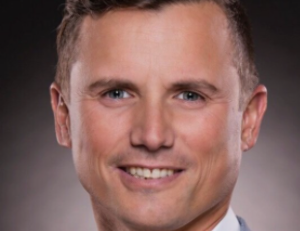Advisers advancing towards larger FAPs
Single FAP advisers weighing up their options are approaching larger aggregates says compliance expert.
Monday, May 10th 2021, 7:06AM  5 Comments
5 Comments
by Daniel Smith

Many advisers are considering their place in the fully licensed regime.
Steve Burgess, director of the Compliance Refinery, says single adviser businesses have been starting to consider the benefits of being part of a larger aggregate FAP.
“Some of the larger groups have been telling me that they have been seeing single adviser FAPs starting to come to them looking for a home.
“They have seen some businesses come through and kick their tyres, casing out the benefits of joining them under their FAP.”
Burgess says that while these reports are largely anecdotal, it could be a sign of things to come.
“While we haven’t seen a lot of movement yet, we are starting to see businesses really consider whether or not it is a good time to move.
“A lot of these businesses are going to have to make a decision soon.
“There are a lot of people who went into the new regime who got a transitional licence and did not think too far ahead.
“While they are technically currently acting as a FAP, many are still undecided whether they would go into the new world.”
For a single adviser considering bringing their book to a larger group, Burgess says they need to carefully consider the offerings of the groups, “I think there is a danger of people making decisions based on limited facts.
“You see a lot of groups that are forming without staff, without propositions but with a summary of what they think they will be able to do.”
Despite the dangers, Burgess believes the single adviser joining up with a larger group is a trend that is going to grow.
“I think we will see not only advisers joining larger FAPs, but we will see FAPs buying each other, merging, some will sell off product lines, some will buy product lines. I think we will keep seeing that over the long term.”
The merging markets will also create an opportunity for product development, according to Burgess, who predicts that the newly merged FAPs will have enough power to begin offering fresh product lines to the market.
Overall, Burgess believes that this shift will be a positive one for the regime.
“I think we are already seeing a shift in dynamic in the sense that we are getting new faces into the industry. It will be attractive to younger people.
“There also seems to be a lot of money floating around. The new regime will attract new capital, new innovation, and new business models.”
| « BetaShares jumps the ditch with expansion into New Zealand | Mann on a mission to diversify financial advice » |
Special Offers
Comments from our readers
Steve's observations are on target and as the realisation of rising costs, time spent, and the full extent of the regulatory/legislative impost hits home, many sole advisers will seek out economies of scale offeed by the shared resources of larger commercial organisations, or decide that it's just all too much.
Either way, the entity licensing regime will ultimately create consolidation among advice providing entities. It matters little whether this is considered to be good or bad - it's simply inevitable, as experience in other jurisdictions adopting the same or similar licensing regimes have shown.
The industry’s rapid aggregation across the Tasman - that occurred 2 decades ago - was largely driven by larger financial institutions wanting to quickly establish their distribution... something that they have recently retreated from.
Whilst I agree that it’s inevitable that some advisors will find comfort in aligning themselves with larger groups, I would argue that the delivery of financial advice is difficult to ‘cookie cut’ & ultimately suits smaller business structures.
Sign In to add your comment
| Printable version | Email to a friend |



